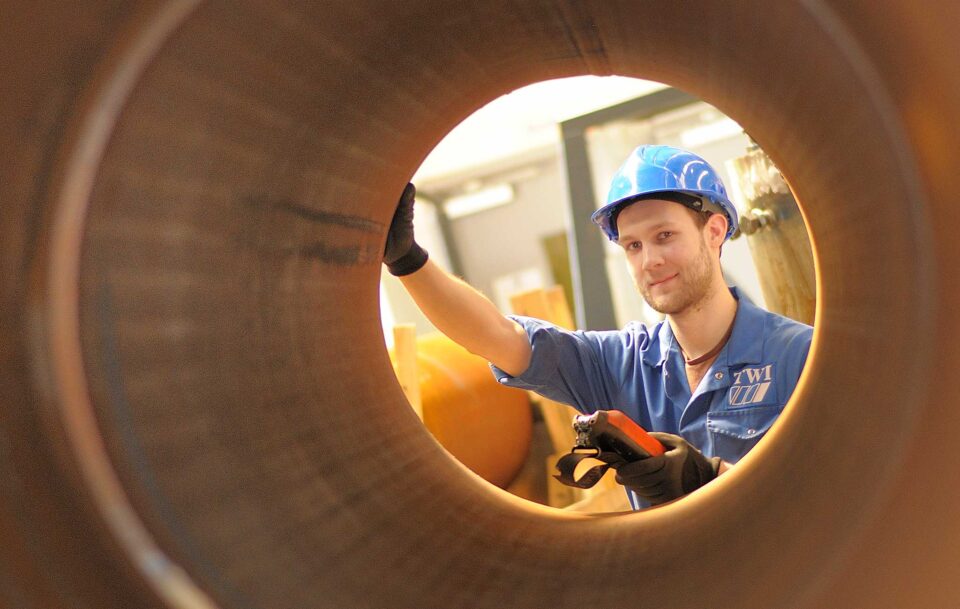Engineering is a broad field of study that encompasses many complex concepts and is used in a variety of applications. It can be confusing to determine the exact definition of engineering, as its use and function vary widely. This article will provide an overview of the various definitions of engineering, as well as its practical applications. In addition to discussing what engineering is, this article will explore how engineering has evolved throughout history and how it is used today.
Table of Contents
Definition Of Engineering
Engineering is the application of scientific and mathematical principles to design, build, and maintain structures, machines, systems, and processes. It involves using creative problem-solving skills to develop innovative solutions that meet the needs of society. Engineers work in a variety of fields such as civil engineering, mechanical engineering, electrical engineering, chemical engineering, and aerospace engineering.
History Of Engineering
Engineering can be defined as the application of scientific and mathematical principles to design and develop complex systems or structures. The field of engineering has been around for centuries, dating all the way back to ancient civilizations like those in Egypt and Mesopotamia. However, it wasn’t until the Industrial Revolution in the 18th and 19th centuries that engineering really began to take off as a profession.
During this time, engineers were instrumental in developing new technologies such as steam engines, railroads, and factories. As these technologies evolved, so did the field of engineering. Today, there are many different types of engineering disciplines including aerospace engineering, civil engineering, electrical engineering, mechanical engineering, and more.
Despite its long history and diverse array of disciplines, one thing remains constant in the field of engineering – its focus on problem-solving. Whether it’s designing a bridge that can withstand extreme weather conditions or developing software that can process vast amounts of data efficiently, engineers use their knowledge and skills to create solutions that meet real-world needs.
Types of Engineering
Engineering is the application of scientific principles to design, build and maintain various systems, machines or structures that solve problems in our daily lives. It encompasses a broad range of fields, each with its own unique set of skills and knowledge.
Civil engineering: One type of engineering is civil engineering, which involves designing and constructing infrastructure such as buildings, roads, bridges, and water systems. Civil engineers use their expertise to ensure safe and efficient transportation networks while also providing essential services to communities. If you are looking for civil engineering for taking the best services for your project contact Adu contractor Calabasas which provide all services according to your needs and budget with full satisfaction.
Mechanical engineering: Another type of engineering is mechanical engineering which deals with the design and manufacture of machinery and devices such as engines, turbines, robots, etc. Mechanical engineers work on anything from small handheld tools to large industrial machinery used in manufacturing plants.
Electrical engineering: It is another field that focuses on designing electrical systems for commercial or residential use. Electrical engineers are skilled in creating complex circuitry designs for electronic devices like computers or cell phones through researching new technologies to improve existing products’ performance. These three types only scratch the surface when it comes to the vast world of engineering disciplines available today!
Engineering function
Engineering is the application of scientific and mathematical principles to design, build, and maintain structures, machines, systems, and processes. The engineering function plays an important role in the development and implementation of new technologies that improve our daily lives. This function includes a wide range of activities such as research and development, testing and evaluation, project management, quality control, technical support services, and maintenance.
Problem-Solving
One of the key aspects of engineering function is problem-solving. Engineers are trained to analyze complex problems using critical thinking skills to come up with practical solutions that meet specific requirements. In order to do this effectively, engineers need to have a thorough understanding of the principles underlying their field of expertise.
Innovation
Another important aspect of engineering function is innovation. Engineers are constantly looking for new ways to improve existing products or develop entirely new technologies that can address unmet needs or solve emerging challenges. This requires creative thinking as well as collaboration with other professionals from different disciplines such as science and business. By leveraging their knowledge and skills in these areas, engineers can drive
innovation forward while also ensuring that their designs meet safety standards and regulatory requirements.
Education Requirements
Engineering refers to the scientific and mathematical principles applied in the design, development, and maintenance of structures, machines, systems, and processes. Becoming an engineer requires a degree in engineering from an accredited university or college. Typically, a four-year bachelor’s degree program is required for entry-level positions in engineering. However, some specialized fields may require advanced degrees such as a master’s or doctorate.
In addition to formal education requirements, aspiring engineers must have strong analytical skills with attention to detail. They should also have excellent problem-solving skills since their job involves identifying problems and developing solutions to complex issues. Engineers must be proficient in computer-aided design (CAD) software programs used for creating designs and prototypes. Strong communication skills are also essential since engineers need to work closely with other professionals such as construction workers, architects, technicians and clients. If you are searching for professional for your project, contact The Sterling-Watson Collective who provides construction, engineering, property development and premium skilled labor services.

Conclusion:
Engineering is the application of science, mathematics and technology to design, develop and improve products, systems, machines and structures. This discipline plays a crucial role in shaping our society by providing innovative solutions to complex problems. It has helped us achieve technological advancements that have transformed the world we live in today.
The impact of engineering can be seen in various fields such as transportation, medicine, communication, energy production and many more. Engineers are responsible for designing safe and efficient modes of transportation like airplanes, trains and cars which have made travel faster and more accessible. In medicine, they have made significant contributions by developing medical equipment like MRI machines or prosthetic limbs which have improved the quality of life for people with disabilities.
Moreover, engineers play a vital role in addressing environmental concerns through sustainable development practices. Using renewable energy sources like solar power or wind turbines help reduce carbon emissions that contribute to climate change. Engineering also provides economic benefits as it creates job opportunities that drive economic growth.

